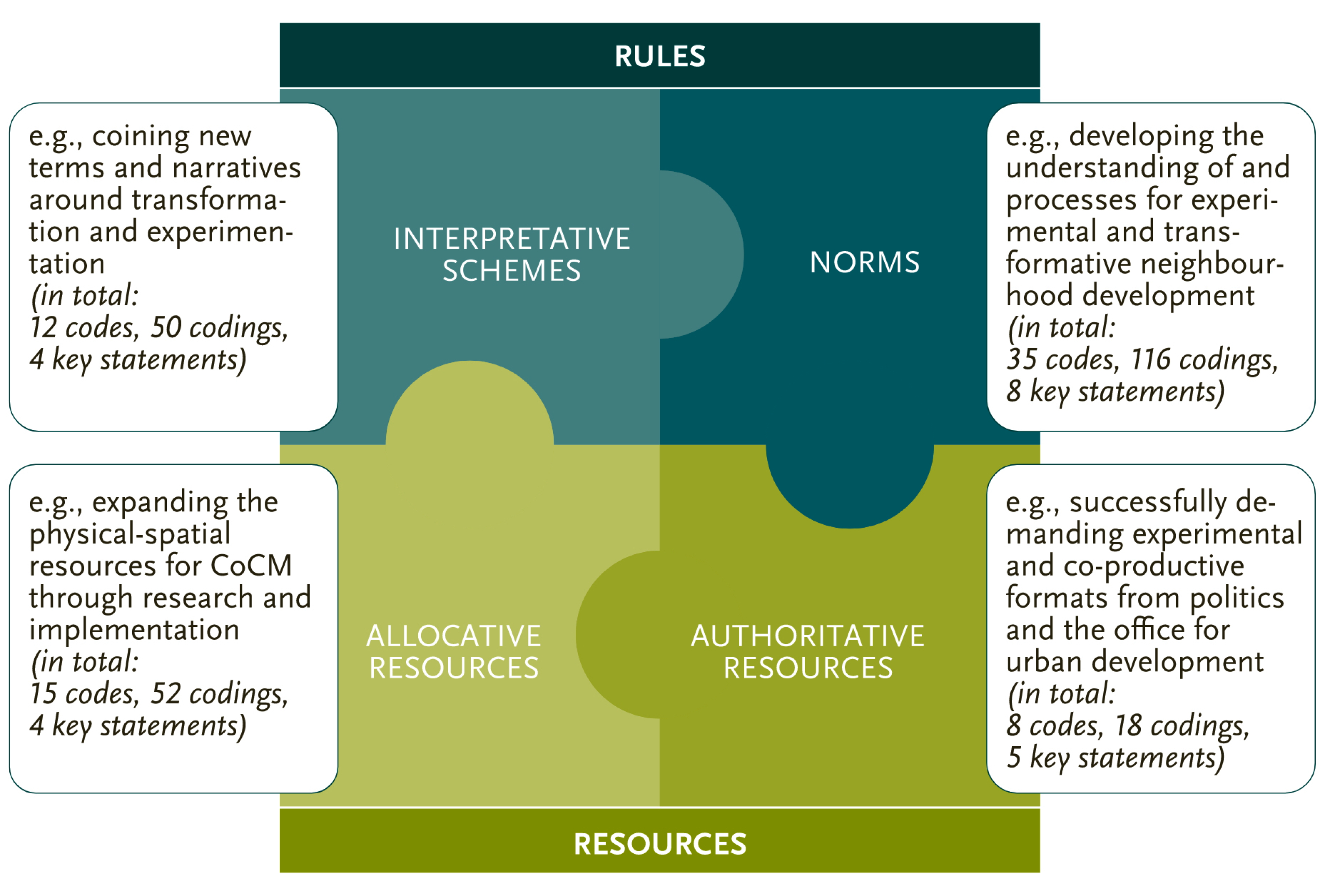
Source: Matthias Wanner, Karoline Augenstein, Timo von Wirth & Daniel Lang, 2024, Figure 1, p. 105
Real-world labs as a transformative and transdisciplinary research approach aim to achieve concrete real-world effects. For some time now, more and more attempts have therefore been made to investigate and document the corresponding effects in a comprehensible manner.
A sociological impact theory of real-world laboratories
The open access available article takes its own approach and analyses the effects of real-world labs on social transformation processes from a medium and long-term sociological perspective. In this interpretation, real-world labs are not only places for concrete projects and experiments, but also have the potential to influence overarching structural dimensions. The article draws on Anthony Giddens' structuration theory to analyse the dynamics between structure and agency in urban real-world labs. This theory emphasises that actors draw on both rules and resources in order to develop transformative capacities.
The example of the Mirke neighbourhood in Wuppertal serves as a case study in which six consecutive transdisciplinary and transformative projects were carried out over a total of eight years. These projects aimed to promote capacities for co-productive city-making . The joint co-evaluation process of these projects was analysed qualitatively. Particular attention was paid to the modalities of structuration theory - interpretative schemes, norms, allocative resources and authoritative resources. We analysed and reflected on how the projects affected these modalities and the capacities developed through them.
Subcategories of modalities for urban real-world labs
The conceptual proposal by Uwe Schneidewind and colleagues from 2018 for the subdivision and operationalisation of the four modalities was empirically examined. By empirically testing and refining these categories, new subcategories were identified that could be useful for future research. The article emphasises that the structure-building powers of real-world labs are significant through their ability to integrate knowledge and promote transdisciplinary reflection and collaboration.
The article is available for download here.
Wanner, Matthias; Augenstein, Karoline; von Wirth, Timo; Lang, Daniel J. (2024). Impacts of urban real-world labs: Insights from a co-evaluation process informed by structuration theory in Wuppertal-Mirke, GAIA - Ecological Perspectives for Science and Society 33 (S1),102–109. https://doi.org/10.14512/gaia.33.S1.15
